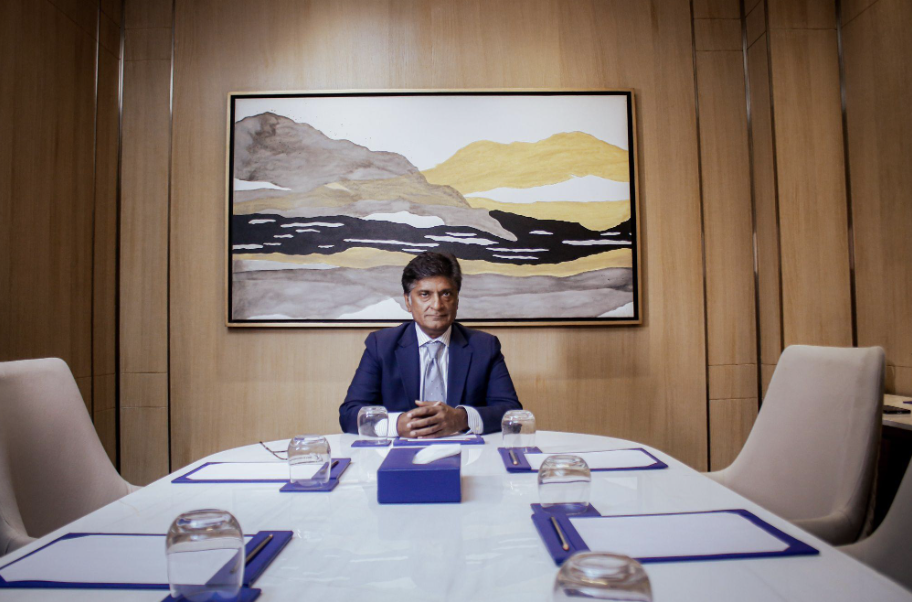There’s an old saying that explains why people like to re-read their favorite books. Even though the words and characters are the same, the experience of the story changes because of how much they’ve changed. That’s what it felt like when the former Wall Street banker Anilesh Ahuja returned to his native India.
After nearly a lifetime in the United States, where he attended both high school and college, started a family, and worked at some of the country’s most prestigious banking companies, Anilesh Ahuja decided to return to where it all started.
He moved away from the subcontinent when he was just a boy. His father relocated the family with the hopes of building a more prosperous future. But now, Ahuja has come back to his native land—with a similar goal in mind.
A Man on a Mission
Ahuja’s new objective is to create a community every bit as desirable—and affordable—as anywhere else in the world. His project, Solitaire Valley, is bursting with innovative ideas designed to create the kind of community that can give residents a longer, more pleasant, and more successful life.
For Ahuja, that means building affordable housing, creating a walkable community, and making common areas that will be used and enjoyed—by all residents, not just the wealthy. Solitaire Valley has a progressive mix of housing options that allow people from middle- and lower-income families to buy unique homes.
“Now, if I build a community where you open the gate and everyone is identical, that is not reality. You want to get away from that. I mean, people come from different socioeconomic backgrounds, and they come from different fields of expertise, with different likes and dislikes. That is a community,” he said. “And I want to almost go back to the way I grew up. And I grew up building with very varied backgrounds, different sizes of apartments, different socioeconomic background.”
It also means questioning urban development on a deep level. While many developers are eager to maximize profit by cramming houses or offices into every square inch of space, Anilesh Ahuja’s project represents a new way to think about community. The Solitaire Valley township will balance the need to make money against the good it can do in residents’ lives and a commitment to compassionate stewardship of land.
“We’re trying to create a carbon-neutral town, create that level of understanding and awareness amongst the people and not be to pick the land to a point where we’re building every square inch that’s allowed,” he said. “To give you an example, in India and every state has its own rules, but the state that we are in allows you to build 70 percent of the land in terms of building. We are building 44. You are allowed to have only 30 percent green, we have 56. We’re building less than 50 percent of what’s allowed.”
Ahuja hopes his new approach to development catches on. If the community response is any indication, it already has.
“I mean, we are getting incredible reaction, as you can expect. I mean, it’s green, it’s like people don’t expect to get value. People are so used to concrete jungles that they literally can’t believe it,” he said. “I, as a member of the board, attended a community event where they invited all the future buyers, as in people who already bought and had an event with music and drinks and food. And people who already bought could come there and see progress and meet their neighbors. And everybody’s reaction was literally they were so impressed with just the green space, which is very difficult to get in a highly populated country, right? You’re really giving them something of value. That’s what we are trying to achieve.”
There and Back Again
Like all homecomings, Ahuja’s return to India has been bittersweet. In the years since his father moved the family to America in search of greater opportunities, both Ahuja and his native country have changed.
Coming back to the subcontinent revealed just how far removed from his home country he has become since leaving. In the United States, Ahuja went to a top university and worked on Wall Street. In India, however, he’s behind the curve.
“I mean, being working in India is out of my comfort zone. I’ve been out of the country for 40 years,” he said. “I don’t even speak the language as well as the locals do, because my vocabulary is very limited. I left as a child. And I read and write at a different level. And I’m learning, I’m reading again. I’m trying to get myself back to at that point where I’m not handicapped in any way.”
The learning has become a way of re-connecting with his people. And, as he learns, Ahuja finds more and more inspiration for future projects to help uplift the people of India.
“There is a lot to still build. There’s a lot to still add to society,” he said. “We’re trying to create an aspirational environment.”



